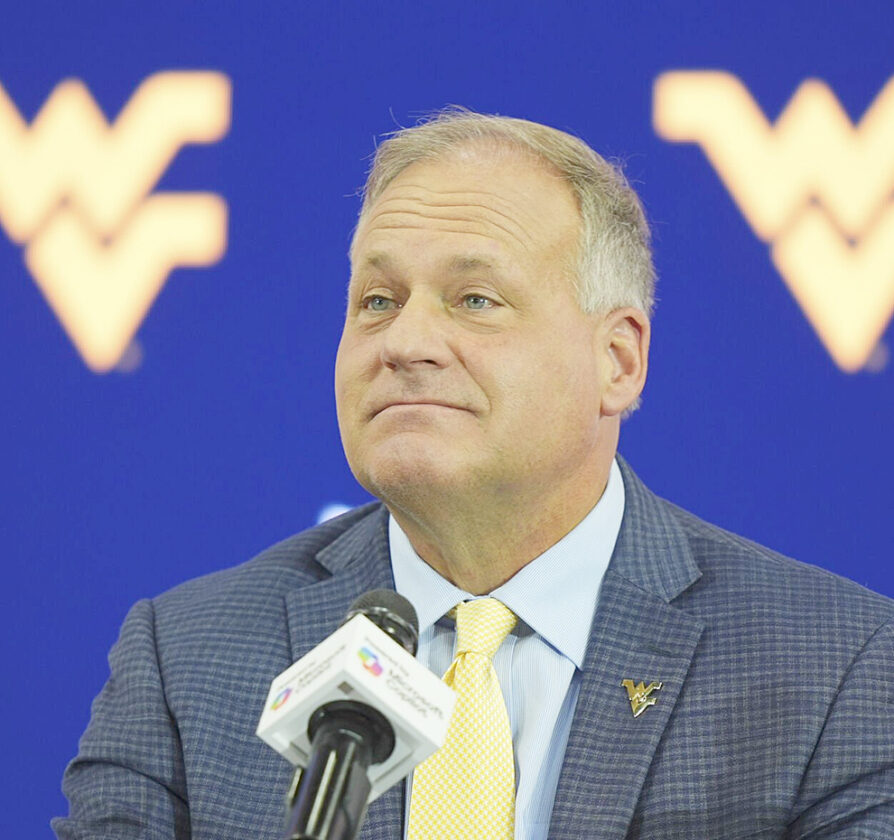College coaches strive to keep players

Submitted photo WVU coach Rich Rodriguez is shown during Big 12 Conference Media Days.
MORGANTOWN — The fiber of big time college athletics has changed completely along with the system running it.
It has easy for those who run the programs in football and basketball to accept the change but hard to admit they had to do so, for accepting it is to accept that it really the college game isn’t about college at all.
Education is a byproduct, not the main goal of most of those who play the games.
It is no longer about bringing in wide-eyed freshmen looking to find their future path, but instead to bring in experienced athletes whose loyalties are tested on a daily basis by those they play for, those who want them to play for them and by outsiders who are hoping to become the Svengali who benefits from guiding their career.
It was Arizona State coach Kenny Dillinger who most succinctly summed it all up and laid it open for the world to see at the Big 12 Media Days.
“To me, recruiting is dead. Retention is alive,” he said.
It isn’t which naive freshman you can convince to begin his college career that defines the success of your program, but instead the ones who can convince you to stick around until they peak and the team peaks.
Far more emphasis has to go into keeping what you have, fighting against the lure of the transfer portal, than either in bringing in busloads of recruits out of high school or through that portal each year.
Kansas State football coach Chris Klieman summed it up for ESPN this way during the festivities in Frisco, Texas:
“I think that the most important factor is that those kids said, ‘No, we’re going to stay right where we’re at because we believe in what we’re doing at their respective schools,'” he said when the subject came up.
“It’s a really good quarterback league this year,” Kleiman went on, speaking of Sam Leavitt, the Preseason Player of the Year after leading surprising Arizona State to last season’s Big 12 championship and the College Football Playoffs.. “I’m sure Sam had opportunities. I’m sure Rocco (Becht of Iowa State) had opportunities. I’m sure Avery Johnson (his own quarterback at Kansas State) had opportunities, and I don’t know all the other ones. I know there’s a lot of ’em coming back.”
If you are going to win, in most circumstances, you are going to need a quarterback who has been raised in your system and players around him who know each other’s moves and timing.
The answer isn’t isn’t to bring in the talent out of high school, but to get them into the program after they have proven themselves but early enough to stick around for a third or fourth year in it.
Once upon a time the lure was just the NFL but now it’s the ability to go elsewhere and there is a revenue sharing and NIL factor involved that can either lure players away or keep them on hand.
That allows the coach to keep the players he needs, but drives up the price of doing so to the point that he can’t afford them.
Those really hurt by the system are the new coaches such as West Virginia’s Rich Rodriguez, coaches who feel they need a quick fix but to get that they are going to have to create a new roster, unable to call upon the experience and culture that is necessary for success.
It really makes the personnel department maybe even more important than the analytic department in a college athletic department.
Matt Campbell at Iowa State has developed a culture based on retention of players he brings in as freshmen.
“We really haven’t changed from our end of it,” he said. “We’ve certainly put a priority on recruiting high school students into our football program and developing those young men and keeping those young men in our football program. Over the last 10 years, it’s probably been the pillar to our success.”
The proof of that is in the numbers. Iowa State has eight transfers come in this year while WVU has 52.
Interestingly, a similar situation exists for Iowa State basketball under coach TJ Otzelberger, who returns 50% of his scoring from last season.
“You want to have returning production; you want to have retention,” he said this spring. “To keep guys like Joshua Jefferson, Tamin Lipsey, Milan Momcilovic, Nate Heise and Cade Kelderman. It’s so important to carry over from one year to the next, the foundation, the leadership that they can provide. I think it allows you to hit the ground running when you get to practice in June and beyond as opposed to a group that is totally new.”
WVU will see as it returns no one from last year’s team as it has its fourth coach in three years with Ross Hodge.



